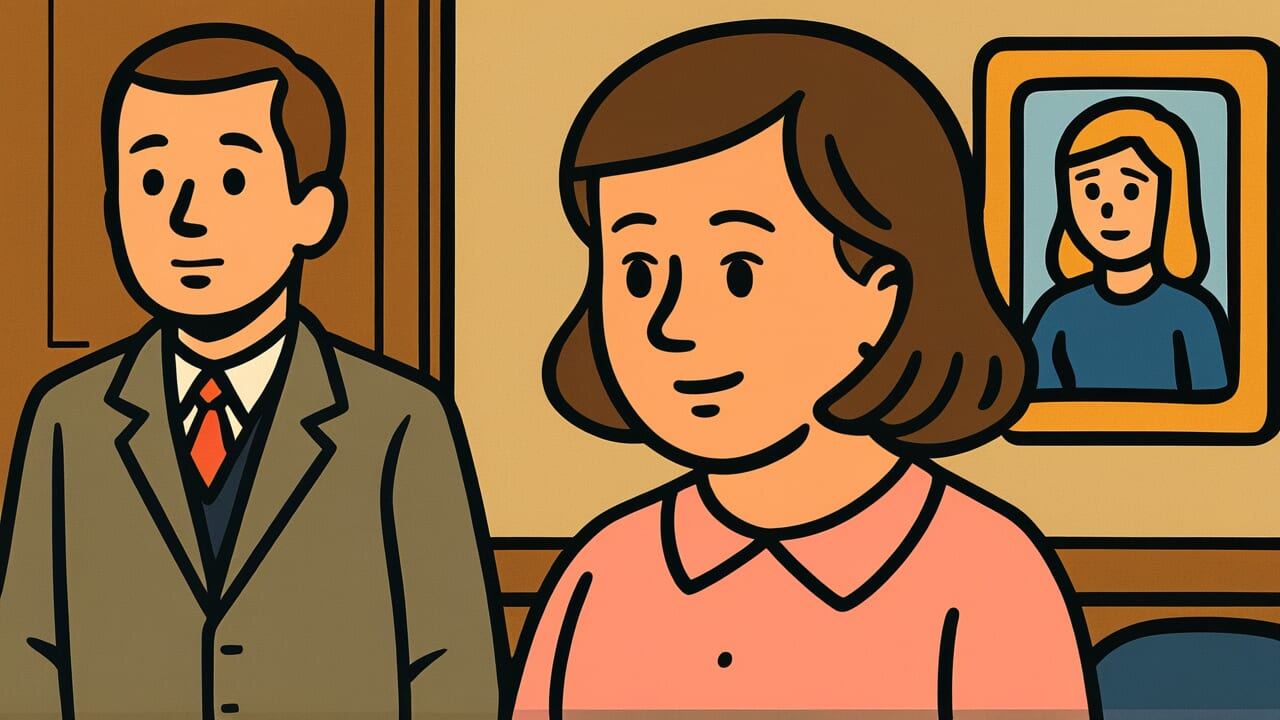How to Read “No one has seen a mother-in-law at seventeen”
Shūtome no jūnana mita mono ga nai
Meaning of “No one has seen a mother-in-law at seventeen”
This proverb means that older women tend to make themselves appear younger than their actual age.
It specifically points out the tendency of elderly women to claim they are younger than they really are or to act more youthful.
When a mother-in-law talks about “when I was seventeen,” no one actually saw her at that age. So there’s no way to verify what she was really like back then.
The proverb describes how people take advantage of this situation to talk as if they were younger and more beautiful than they actually were.
This saying sharply captures a human trait. As people age, they develop a longing for and attachment to youth.
It’s often used with a bit of irony when watching elderly women hide their real age or try to look younger.
Even today, it’s not unusual to see people claim to be younger than they are or work hard to maintain a youthful appearance.
This proverb expresses this universal human psychology with a touch of humor.
Origin and Etymology
No clear written records remain about the origin of this proverb. However, we can make interesting observations from how the phrase is constructed.
Let’s focus on the expression “mother-in-law at seventeen.” In the Edo period, seventeen was considered the age when a woman was at her most beautiful and radiant.
In modern terms, it’s the peak of youth. The phrase “no one has seen” means that nobody witnessed that appearance.
In other words, elderly women in the position of mother-in-law take advantage of the fact that no one knows what they looked like at seventeen.
They talk as if they were younger and more beautiful than they actually were. As time passes, memories become idealized.
People tend to describe their younger selves as more glorious than reality.
The background of this expression may relate to the mother-in-law’s position in the Edo period family system.
Mothers-in-law held authority in the household. By emphasizing their youthful beauty and worth, they may have tried to strengthen their position.
This proverb contains human pride and complex feelings about aging.
Usage Examples
- My mother has been trying harder to look young lately. It’s exactly like “No one has seen a mother-in-law at seventeen.”
- The way she dodges the question when asked her age is what they call “No one has seen a mother-in-law at seventeen.”
Universal Wisdom
“No one has seen a mother-in-law at seventeen” brilliantly captures the universal human emotion of longing for youth.
Why do people idealize their younger days and want to appear younger as they age?
It’s resistance to losing youth. At the same time, it’s an instinctive effort to preserve one’s self-worth.
No one can resist the flow of time. But that’s exactly why people beautify the past and try to keep themselves looking youthful.
This proverb has been passed down for generations for a reason. It’s not just criticism.
It expresses both human weakness and lovability at the same time.
Lying about age or trying to look young may seem like vanity. But behind it lies a desperate wish to have one’s worth recognized and to remain attractive.
Our ancestors understood this human nature. They had the wisdom not to reject it but to accept it with humor.
Everyone ages. Everyone misses their youth. This proverb looks at this universal human condition with warm eyes.
When AI Hears This
Human memory isn’t stored like photographs. It’s reconstructed each time we remember, influenced by current emotions and situations.
This is a confirmed fact in cognitive science. The mother-in-law definitely existed at age seventeen.
But when viewed through the filter of current mother-in-law and daughter-in-law relations, even that memory gets rewritten.
What’s more interesting is that the human brain has something called “negativity bias.” This is the tendency to remember and focus on negative information more strongly than positive information.
Research shows that bad events are remembered about five times more strongly than good ones.
So the mother-in-law’s nagging and unpleasant behavior is vividly remembered. But her youthful cuteness and kind moments fade from memory.
This proverb shows not just exaggeration but a structural feature of human cognitive systems.
The worse the current relationship, the more negatively the past is repainted. The mother-in-law herself may idealize her seventeen-year-old self in memory.
The daughter-in-law may interpret the past darkly because of current dissatisfaction. In other words, they likely have completely different memories of the same past.
Memory is a collaboration between present and past, not objective truth.
Lessons for Today
This proverb teaches us the importance of freeing ourselves from obsession with age.
Youth certainly has value. But it’s not the entirety of life’s worth.
Lying about age or trying too hard to look young actually makes us lose sight of our current charm.
What matters more is recognizing that each age has its own appropriate beauty and appeal.
The depth, wisdom, and composure that only experienced people can have are valuable in ways different from youth.
Aging isn’t just about losing things. We gain much as well.
This proverb also teaches tolerance toward others. When we see someone trying to look younger, we shouldn’t criticize immediately.
We should have the kindness to understand the anxiety and wishes behind it. Everyone ages. Everyone misses their youth.
Accept yourself in this moment. Live authentically without being bound by age.
That is true youthfulness and charm, isn’t it?



Comments